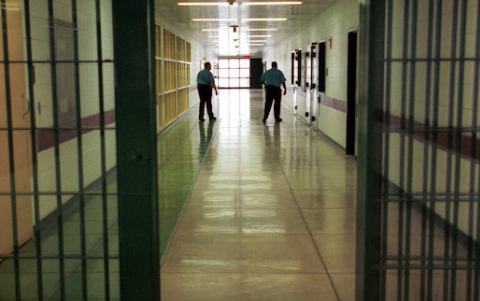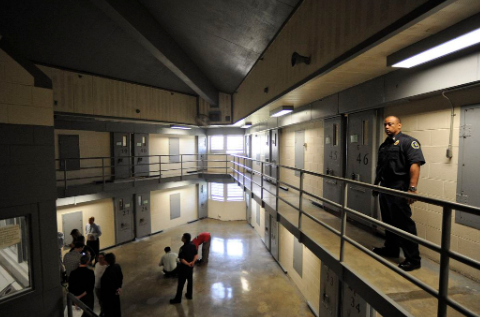You may want to be a correctional officer and you may also have read the requirements for being in that position, but you may also wonder about alternative jobs for correctional officers. Here, you are able to read some alternative careers and similar jobs to a correctional officer according to the Resume Worded site.
According to the Resume Worded site, some alternative careers and similar jobs to a correctional officer are listed below.
- Security Officer
The percentage of skill similarity between security officer and correctional officer is 63%. And the skills that you have to develop if you want to transition from a correctional officer to a security officer are closed-circuit television (CCTV), access control, corporate security, security management, security training, risk assessment, customer service, personal security, security awareness, close protection, SIA, executive protection, team leadership, aviation security, security audits, fire safety, crisis management, and teaching. - Police Officer
The skill similarity between a correctional officer and police officer is 81%. The skills that you have to develop if you want to transition from a correctional officer to a police officer are interrogation, evidence collection, field training, police officers, community policing, and police training. - Sergeant
The skill similarity between a correctional officer and sergeant is 73%. The skills that you have to develop if you want to transition from a correctional officer to a sergeant are military, military operations, operational planning, army, military training, force protection, and U.S. Department of Defense. - Sheriff
The skill similarity between a correctional officer and a sheriff is 83%. The skills that you have to develop if you want to transition from a correctional officer to a sheriff are interrogation, evidence collection, field training, emergency services, and community policing. - Security Professional
The skill similarity between a correctional officer and security professional is 62%. The skills that you have to develop if you want to transition from a correctional officer to a security professional are security management, corporate security, closed-circuit television (CCTV), close protection, security training, access control, risk assessment, personal security, security awareness, protection, executive protection, asset protection, customer service, cybersecurity, information security, network security, security audits, security information and event management (SIEM), vulnerability assessment, penetration testing, Firewalls, Cisco ASA, Ethical hacking, crisis management, risk management, teaching, fire safety, Microsoft Access, Management, EHS (Environment, Health, and Safety), project management, leadership, private security, team leadership, strategic planning, team building, sales, negotiation, opening systems, military, personnel security, counterterrorism. - Probation Officer
The skill similarity between a correctional officer and a probation officer is 71%. The skills that you have to develop if you want to transition from a correctional officer to a probation officer are criminal law, probation, case management, public policy, litigation, evidence collection, motivational interviewing, community outreach, criminology, and legal research. - Detention Officer
The skill similarity between a correctional officer and a detention officer is 94%. The skills that you have to develop if you want to transition from a correctional officer to a detention officer are detention, security management and defensive tactics. - Probation Parole Officer
The skill similarity between a correctional officer and a probation parole officer is 77%. The skills that you have to develop if you want to transition from a correctional officer to a probation parole officer are parole, case management, probation, offender management, motivational interviewing, court appearances, public policy, evidence collection and report writing.
The Things That Correctional Officers Do
As explained on the All Criminal Justice Schools site, as a correctional officer, you have to provide a positive role model for offenders and also you have to help them to be able to be future productive members of society. You have to use your education and also clear communication skills to counteract the criminal thinking of the inmates. Besides, you also have to maintain a secure environment.
A correctional officer also has a task to control and monitor the activities of inmates in jails and prisons across the country. Enforcing rules, keeping order, and searching inmates for contraband are also done by correctional officers.
To be a correctional officer, you are required to have keen observation, knowledge and skill because you will manage challenging people. So, completing correctional worker academy or some other form of corrections training is needed.
However, there are also other careers in the correctional system such as correctional treatment specialist, parole and probation officer, and prison management if you want to take it to the next level.
Skills Needed to be a Correctional Officer
Self-confidence and good physical conditioning are needed for being a correctional officer. Not only these factors, you also have to be systematic, dependable, decisive and have the ability to think on your feet. And here are some skills and personality traits that you need to have to be a correctional officer according to the All Criminal Justice Schools site.
- You must have critical thinking.
- You need to have the ability to be able to maintain composure.
- You must have interpersonal skills.
- You must have good communication skills.
- You must have honesty and a sense of fairness.
- You need to be very tolerant of stress.
The Difference Between Correctional Officers in Prisons and Jails
When you want to be a correctional officer, you may have an expectation to work in some form of correctional facility. However, what is the difference between a correctional officer in prisons and jails? First, you need to note that jails are shorter-term correctional facilities and prisons are longer-term correctional facilities as explained on the Degree Query according to the United States Bureau of Justice Statistics.
Let’s say that you work as a correctional officer in a jail. If so, you will supervise inmates who are convicted of misdemeanors and other crimes of a less serious nature. You may also work with people who are still in the process of awaiting a trial or sentencing. Usually, the incarcerated people in jails will be there for less than a year. What about correctional officers in prisons? If you work in prison, you may supervise the similar inmates for years and usually the inmates are convicted of more serious crimes.
There are some corrections officers who prefer to work in jails because the inmates committed less serious offenses. However, there are also some correctional officers who prefer to work in prisons because they want to develop a more long-term relationship with the inmates.

A bookworm and researcher especially related to law and citizenship education. I spend time every day in front of the internet and the campus library.





